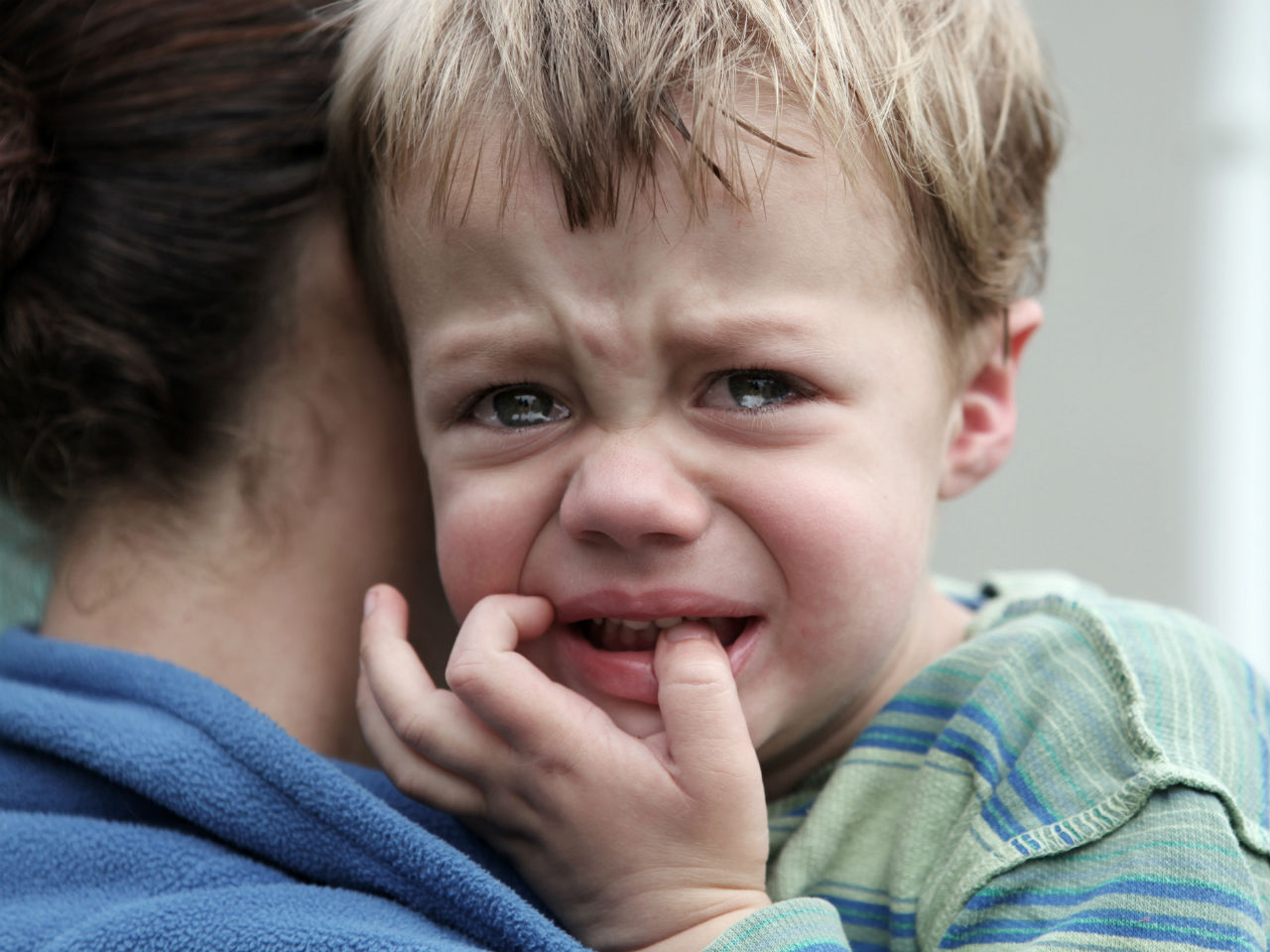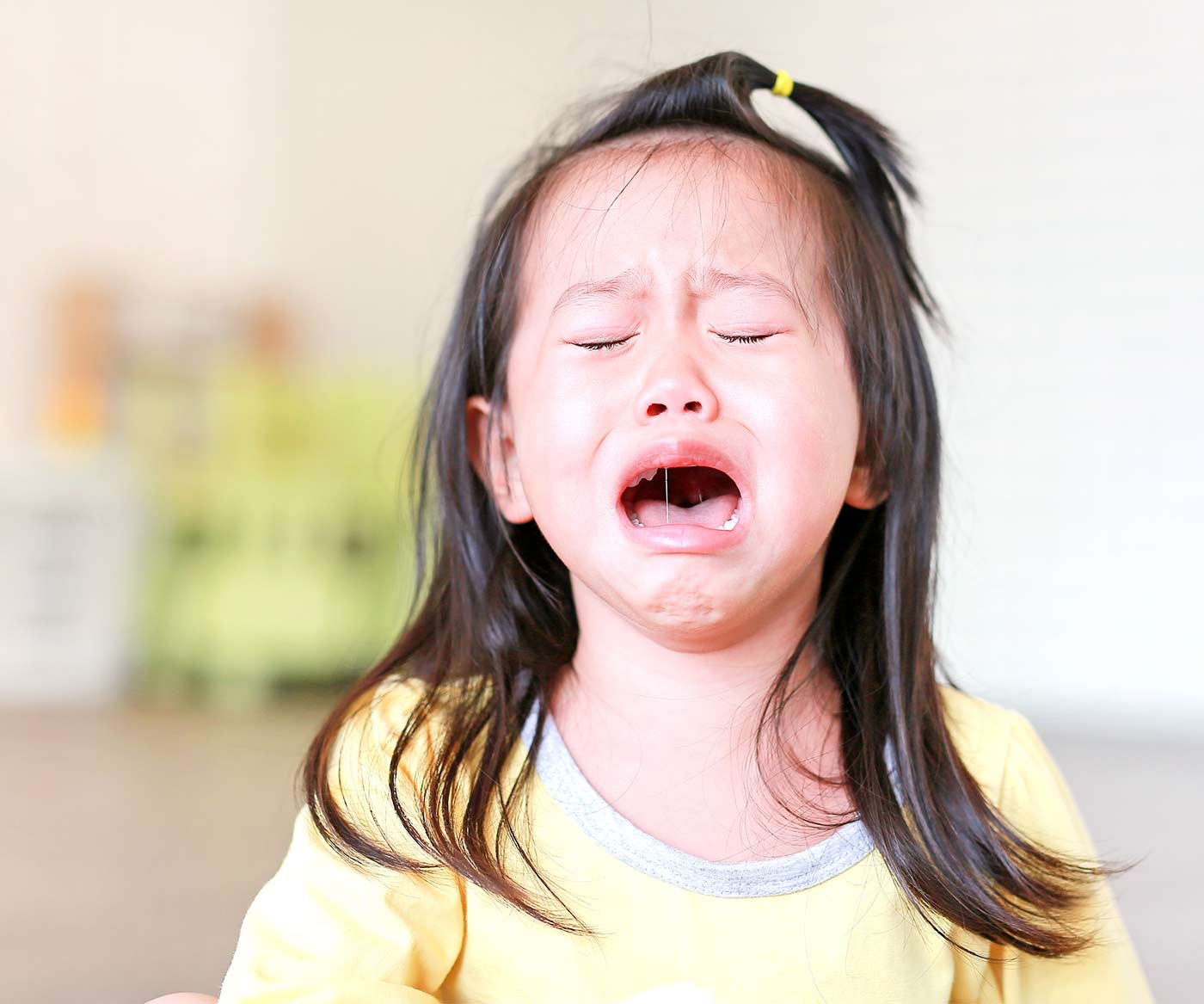Children cry. As they grow up, sometimes when they're in pain, when they're tired, or when they've lost something important to them. This is normal. But children cry really A LOT. They scream and yell and make a noise like there's no tomorrow like the whole world is ending (even though it isn't).
The psychology behind baby`s crying
Scientists tell that children do this because they want to get their parents' attention, who are usually busy with other stuff. In other words, it's a habit. A bad one. Nevertheless, knowing the reasons behind children's crying won't make them cry less - so we have twelve tips for you on what you could do in order to keep your kids from losing it before the appropriate time.
The limbic system in our body is responsible for emotions. When one is stressed, this part of the brain activates causing feelings of anxiety which trigger crying. The limbic system works in an involuntary manner - it cannot distinguish between a situation that could cause danger and one that is actually dangerous. Children are not much different from adults when it comes to this emotional response system.
Crying in most cases begins due to the sympathetic response, which is what is known as fight or flight response. The child feels that he/she is in danger and starts to cry to attract the attention of parents, who will hopefully protect them. This physiological reaction can be compared to traffic jams on roads - nobody knows why they are happening but one thing is clear - they are dangerous for drivers so the best way out of it is not to try driving through crowds but look for another route!
By looking at children's behavior you can easily identify their next move. If a child wants something, he/she doesn't usually ask politely, they demand it by crying hysterically, just like the first time mommy breastfed him/her. That is why if your kid cries then you must think about how this situation can be turned into a positive move for both you and your child.
The crying is always triggered by something, so if your child keeps doing it there must be a reason behind it. The reasons vary greatly - the most common are hunger, tiredness, pain(if they fell or got hurt) or because of their bad behavior (they don't want to go to bed, etc.). Parents should teach children not to cry when they don't get what they want because that teaches them that this kind of response works.

Baby`s crying
On the other hand, psychological aspects related to feelings play a very important role in all stages of life development. Sometimes people cry without any visible reasons at all! Why is this? What are children trying to tell us when they cry so much?
Volume
Some kids cry softly ("Oh I'm fine!") while others cry loudly ("LET ME OUT OF HERE"). It depends on how hard their parents have raised them - some are taught that you shouldn't be a nuisance-maker, while others are told that being loud gets you what you want.
Puberty
Small children cry when they're in pain, but older children - well, not so much. Suddenly the embarrassed pre-teens start to hold it in. It's like they've finally realized that crying is for babies. They think that crying makes them look weak and childish, even though it doesn't at all.
Emotion
Kids cry when they're happy too - obviously, this depends on their upbringing, but some are taught that you shouldn't be a nuisance-maker, while others are told that being loud gets you what you want. But parents need to know something very important about kids: everything is "the end of the world" (which means it's always much worse than it actually is). Being loud gets you what you want, but it also makes things worse. So sometimes kids cry when they're unhappy too.
What are children trying to tell us when they cry so much?
They're trying to tell us that something is wrong. Alcohol-dependent parents mean children never learn not to cry. It's simple: don't cry if there's nothing bothering you. If your parents are habitual drinkers, then try crying just a little bit less.
Some believe the reason why children cry so much is that they're spoiled. As adults, not all kids are equally loud or strong or annoying - but because children can be so exhausting, it feels like they are. They think their only job is not being perfect, but it isn't at all - they have to learn how to be good kids, too. Children aren't always well-behaved... which means that sometimes their parents shouldn't expect them to be.
The reasons for your baby`s (or toddler`s) crying vary. Sometimes, you're not even sure why your baby is crying.
- Hunger
Your baby may be hungry, even if you feed her or him just a few minutes before. Their stomachs are very small and they need a lot of food for their growing bodies.
- Swaddling
Babies often cry when they aren't swaddled tightly enough; they feel insecure without the "pressure" of swaddling. If you don't believe it, try holding your baby with one arm while swaddling them with the other - many babies will stop crying right away (but this technique doesn't work on older babies). Some moms wrap their babies in blankets after feeding, but this is typical because it's harder to hold onto a squirming baby while trying to get them into their clothes.

- Teething
Some babies, like some adults, are "clenchers" - they clench their jaws together very tightly. If your baby does this you might notice that she or he tends to cry more when they're swaddled or held securely.
You can tell if your baby is clenching his/her jaw by brushing your finger over the area of his cheek near the ear lobe; if it's smooth and taut, your baby is probably clenching his/her jaw. Teething increases both pain and irritability, no matter what age you are. It can be very difficult for even an adult to concentrate on much besides the pain of teething.
- Separation Anxiety
It's not just children who get separation anxiety - some babies can "freak out" when their parents aren't close enough.
- Tummy/Gas
If your baby has colic, you know that crying is her or his way of relieving the discomfort of gas and spasms. It's important to burp your baby (and keep burping them until they've stopped swallowing air). Keeping a cloth diaper under your baby is also helpful because it absorbs excess moisture from spit-up, which further contributes to the problem of gas.
What do pediatricians tell?
They're told to cry it out - give their child a time-out when they get too loud or annoying. Or just ignore them. They say that the only way kids will learn is if parents do something about it, but many pediatricians recommend that children be ignored in order for them to learn not to cry so much.
Take them seriously when they start talking and show emotions (laughing and screaming). Ignore them until they calm down. It doesn't take long before the volume goes down either, because their breathing slows without even noticing it.
If your child cries often, try playing with your child more often instead of making noise yourself. This is the perfect solution: no crying and everyone has fun!
Some children cry so much because their parents have created an environment where this behavior is not only acceptable but expected, even rewarded. If you tell your child he cannot have an ice-cream cone unless he cries, guess what? He may cry until he gets the ice-cream cone. If you give your child a gift when she cries, guess what? She'll continue to do it in order to get gifts.
When adults tell children that their whining and crying will get them what they want, then yes - kids will whine and cry more. Telling a child "no" does not take away his power -- but telling him "yes" does.

If your child cries because of pain or exhaustion, truly listen to her or him - even if it's only for a minute or so every few hours. Children need their parents to be attentive, just as much as babies need constant holding at all times. Even older children sometimes feel insecure if their mother isn't home and they start crying for her.
We all know that children can "throw tantrums" but we don't always recognize the signs of more serious mood swings, such as anger and depression. If your child is unusually irritable or if he or she seems to be sad much of the time, it's important to pay attention - both to what your child says, and what he doesn't say.
How can you deal with kids` cries?
You can try to calm them down.
It's a mistake for parents to ignore or punish kids when they cry because that will only serve to make them more nervous. The first step should be trying to comfort your child and reassure him/her until he stops crying. After all, you're the grown-up - you should know better than the baby what's going on and why he's upset! If it feels like things are getting out of control, take a deep breath and count to 10 before taking any action.
Don't yell back
The worst thing you could do is scream at your baby or young child, or tell them not to cry. Shouting just makes everybody involved more upset and confused.
Try to cheer them up
If children cry because they're sad, bored, or frustrated sometimes it helps if you can provide distractions. The more positive attention you give your child the less he/she will probably want to cry.
Give them something to look forward to
When kids start seeing their future as bleak and colorless, that's when they start crying a lot. This may be a sign that some sort of outside help is needed - just talking things over with your partner might help resolve the problem. If you have a feeling this isn't going to work, talk about seeking professional advice from a therapist or counselor. Of course, this is all assuming that life isn't so bad at home as well as at school and with friends.
Don't give in to everything
If you've tried all the above and your child is still upset, don't feel guilty if comforting him just isn't possible. At some point, even a loving parent has to stop giving attention and go on with what they're doing.
When should you visit the pediatrician?
However, there are cases when it is better and wisest to consult your pediatrician. For example, there are many reasons for children to be constantly cranky and sad – from hyperthyroidism and diabetes to anemia and epilepsy. If you notice that your child has fever or diarrhea along with his mood swings, this may indicate a serious illness such as strep throat.
In this situation, a parent has to be particularly attentive and considerate, because kids` mood swings may be caused by the infections they're fighting. Low-grade fever, for example, can cause irritability - but this doesn't mean that your child should bear with it without any relief! Check with your pediatrician to make sure what's wrong.
If there is a mild illness (strep throat) go see a pediatrician. If there are signs of depression or anger (threats, self-injury), go see a therapist or psychiatrist.
Final verdict
Kids don't mean to be bratty. If they're crying, it means something is wrong and you need to fix it as a parent. Be sure to take your child's age and personality into consideration when trying to calm them down, and don't get angry or yell at them. Asking for help from a therapist is not a sign of weakness, it is the best way to stop kids` mood swings.